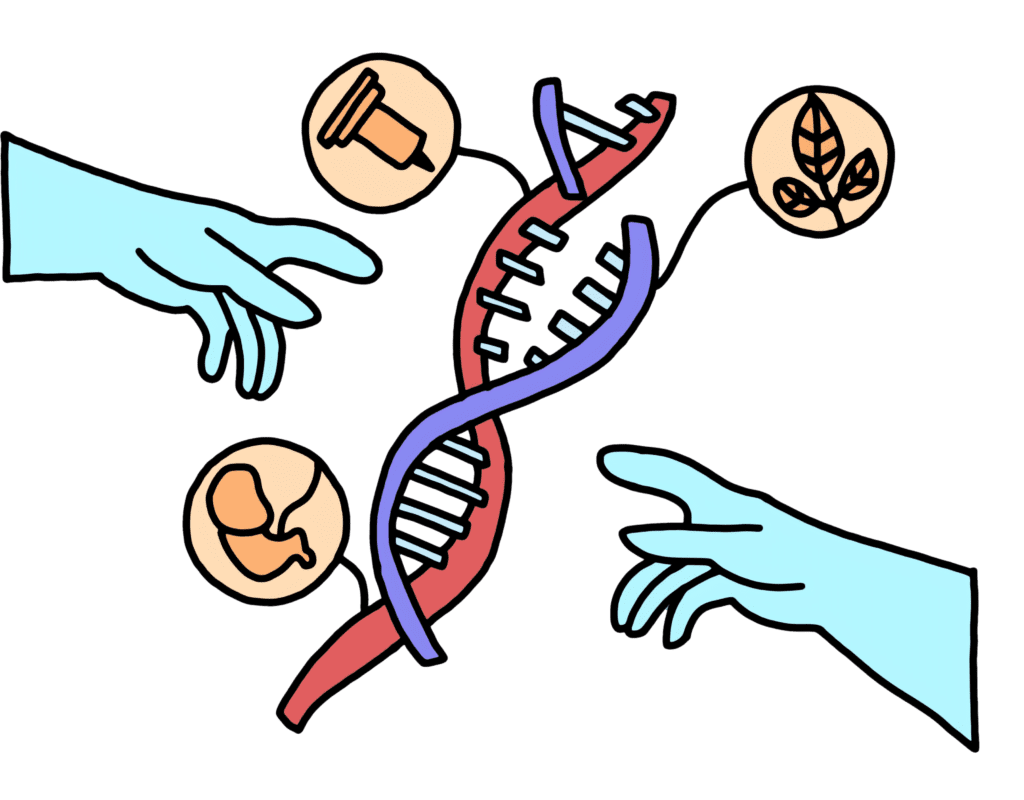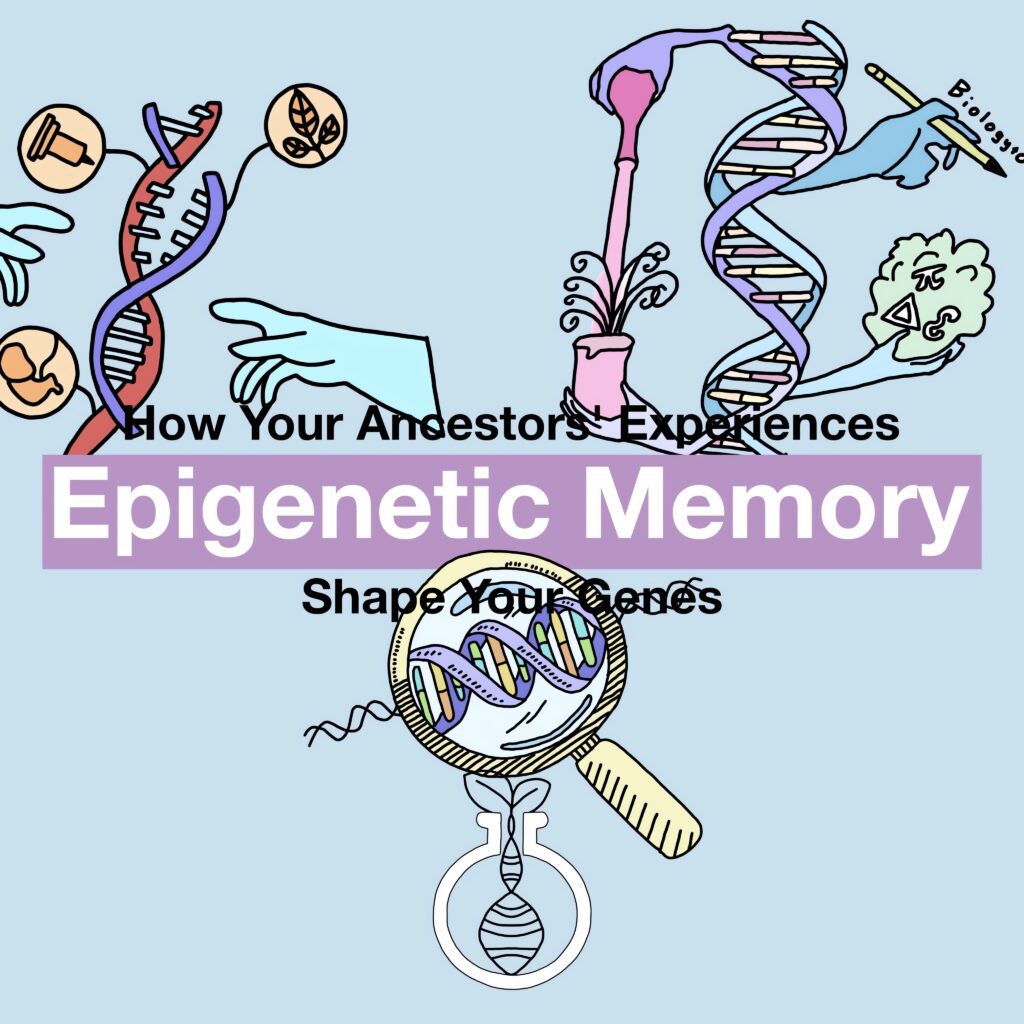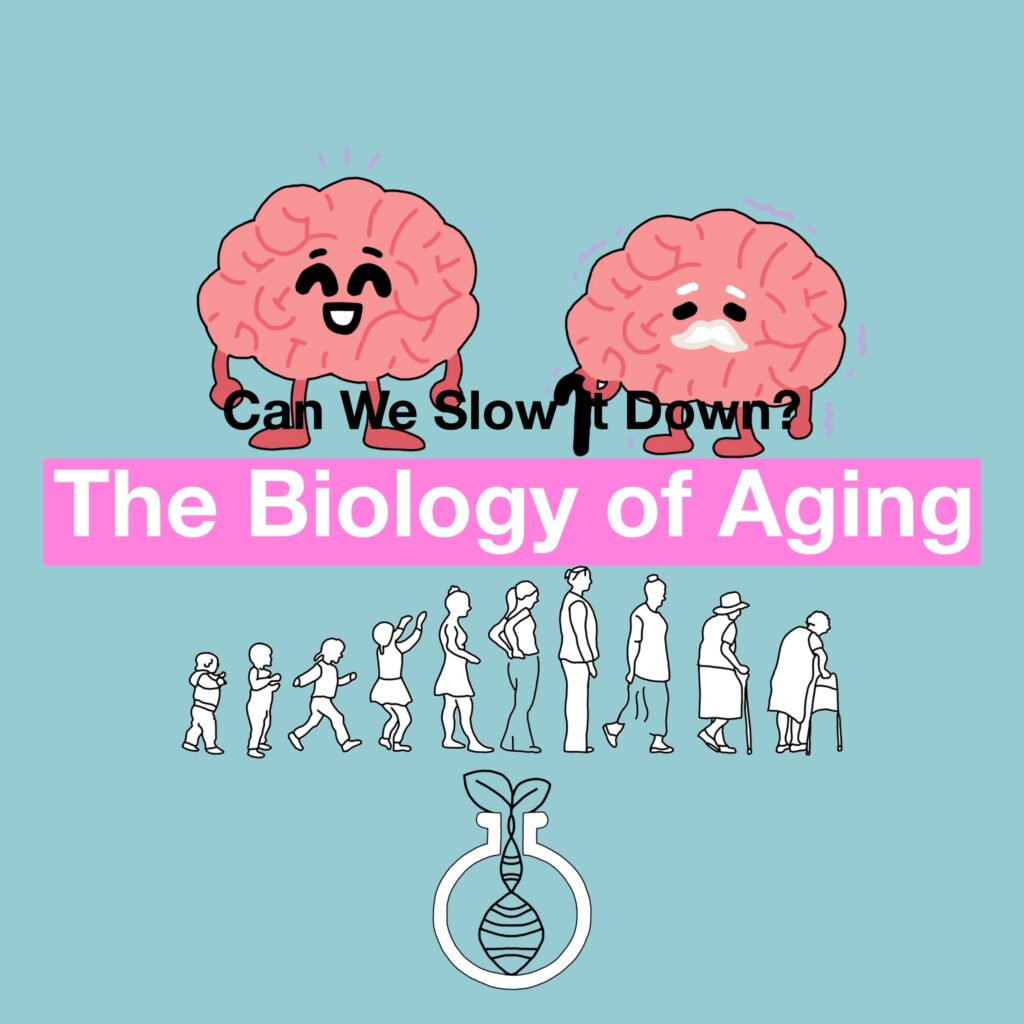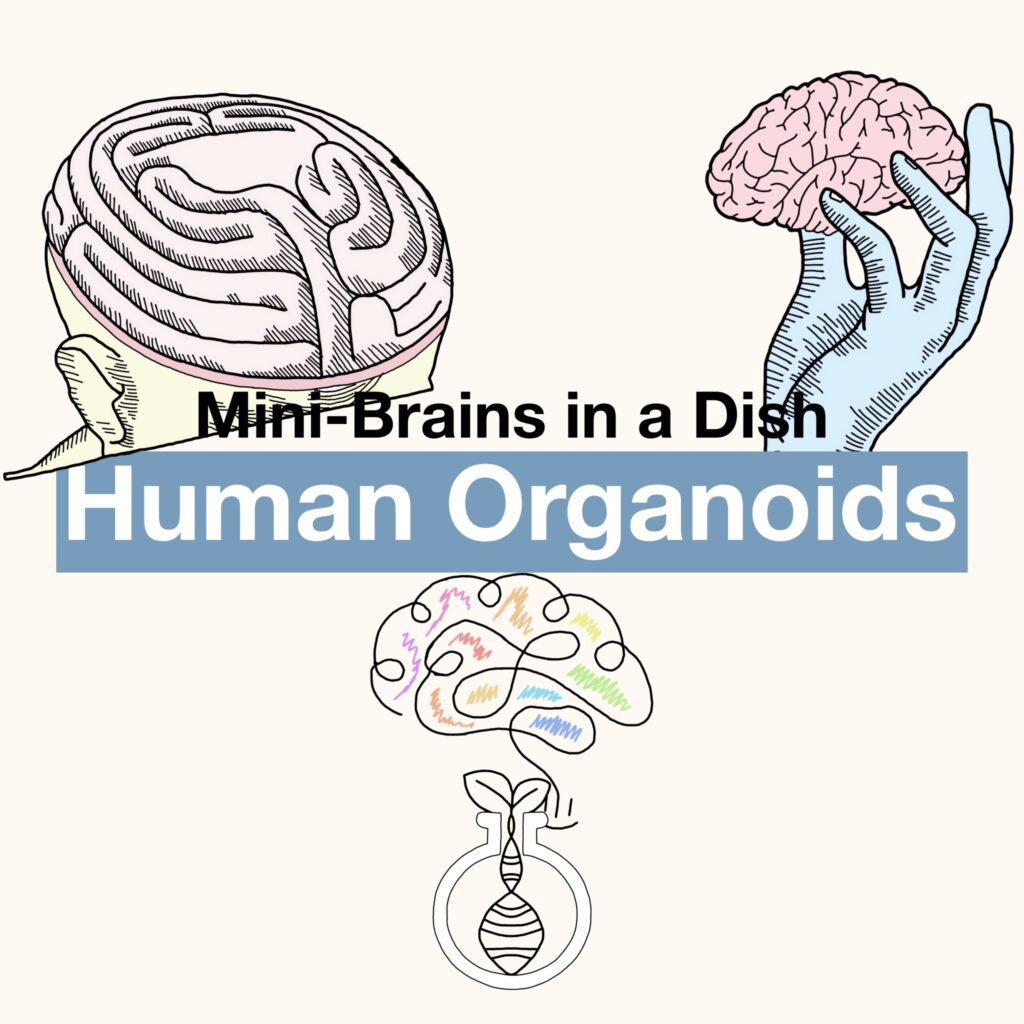Imagine that your great-great-grandmother was a high-class pastry chef, whipping up cakes and cookies with ease, preparing meals to royal families. But here you are, burning toast and even struggling with instant noodles. Could her extraordinary abilities of cooking somehow hidden in your genes, waiting to be unlocked? Maybe your sudden obsession with baking shows that it isn’t just a hobby- perhaps it’s your great-great-grandmother whispering through your DNA, reminding the secret recipes you didn’t know it existed.
Is it truly feasible that our fears, talents, flaws and quirks are more than just random- are they tiny echoes of experiences and traumas from people we’ve never met, but always have carried a part of them: GENE.
Welcome to the fascinating world of epigenetic memory! We’ve always known that DNA is just like a history book that includes the code that determines how tall you’ll be or what color your eyes and hair are. But this history book also keeps the record of what your ancestors went through. But here’s the twist: these records don’t come in the form of changes of your genes themselves, but in how those genes expressed or activated.

Wait… You’re Saying That Our Genes Have Memory?
Exactly! Epigenetics is the study of how cells control gene activity -like stress, diet or trauma-without changing the DNA sequence. In Greek, “Epi- “means on or above, and epigenetic defines elements beyond the genetic code. Let’s think that your genes are like a light switch. In this scenario, epigenetics is the hand that flips that switch up or down.
For instance, in the case of DNA methylation. This is like sticky notes attached to your DNA that say, “Hey, don’t read this gene!” Your great grandfather might have had a stressful life, and this could have been incorporated into the genes that deal with stress at that moment a sticky note. And now you might find yourself quite sensitive to stress thanks to the little “sticky note” left behind. Pretty wild, right?

So, What Kind of Things Stick Around?
It came in the view that things like war, famine, trauma, genocide and even a super healthy diet can leave marks that inherits from generation to generation. There’s even a famous example: Dutch Famine Affected Regulation of Growth Genes. The western part of The Netherlands suffered through a severe 6-month famine in the winter of 1944-1945. In this Hunger Winter the supplemental rations delivered amounted to as little as one fourth of the total energy needs. It appears that children conceived but not born during the famine subsequently were born at a normal birth weight. Following studies on these Hunger Winter children’s DNA reveal that the children’s growth genes regulation system was different and linked them more to a tendency to metabolic disorder later in life- just because their ancestors went through an extreme starvation period.

Do We Inherit Trauma?
The scientists suggests that it’s possible. Therefore, yes, we kind of inherit the trauma. Repedaetly or severely (like war, abuse, racism, etc.) experienced trauma can provoke changes in the body that inherits to future generations. You can think of it like your ancestors leaving you a “bookmark” to warn and prepare you to potential hard times. We all have our times when we feel depressed or anxious we can’t quite explain why. Could the reason we can’t explain it be that the struggles of our ancestors are still echoing in our genes?
Trauma is not just a personal experience; it can be passed down through generations like a genetic legacy.” – Rachel Yehuda
Can We Alterate Our Genetic “Bookmarks” ?
Some reseearchs demonstartes that these “sticky notes” and “bookmarks” can removed, or even reversed, by changing your actions and environment. And that’s the bright side: Just because our genes are marked in a certain way doesn’t exactly mean it’s no longer changeable. Sufficient nutrition, practise, and stress management could help shift how our genes behave. It’s almost something like sending a message up to the family tree, reassuring your ancestors, “Hey don’t worry, I’ve got this covered.”

The Epigenetics Enigma: What’s Left to Reveal?
Epigenetics is an extraordinarily wide field that waits its secrets to be unraveled. And even though the future looks super thrilling, for now we’re only scratching the surface. Scientists researching ways to target these epigenetic markers to treat cardiovascular disease and cancer to neurodevelopmental and neurodegenerative disorders, potentially using the past stored in our genes to expand the therapy techniques.
Hence, the next you feel a little bit stress, anxious for nor reason, and even mysteriously happy, before you start to wonder if you’re bipolar or something, pause for a second. Could those unexpected mood swings be a whisper from your ancestors? Could your ancestors trying to communicate with you through your genes?
What kind of stories written in our DNA’s? Could changing our life today revise a better future for the next generation? Could epigenetics unlock a whole new realm of personalized medicine, offering treatments to cure fatal diseases? What if finally starting that super-duper diet next Monday could change your grandchild’s health one day?
Well, only time and hard work will answer these questions, but the possibilities are intoxicating!


My name is Meliha Çay, and I am currently a 3rd-year Bioengineering student at Marmara University. Writing has always been a passion of mine, and now I have the incredible opportunity to combine it with my academic field as the Content Manager for Biologyto. My mission is to make science accessible, fun, and engaging for everyone. At Biologyto, we aim to inspire a love for science through articles that are not only informative but also full of excitement and creativity. I hope to spark curiosity in others and help them explore the amazing world of bioengineering and beyond.






Pingback: The Connection Between Obesity and Epigenetic Memory
Pingback: Epigenetics: Can Your Environment Change Your DNA?